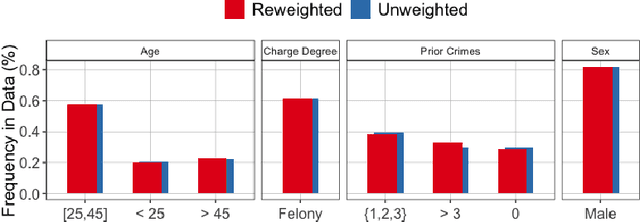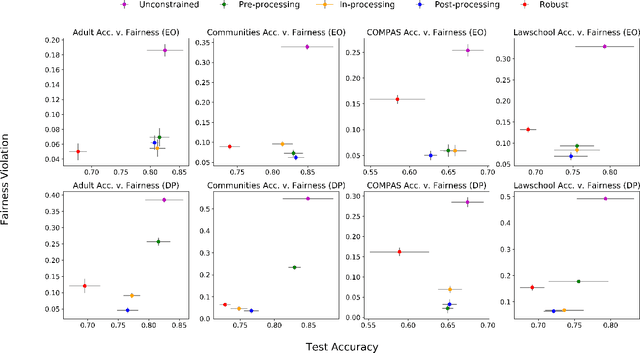Jeannette M. Wing
Ensuring Fairness Beyond the Training Data
Jul 12, 2020


Abstract:We initiate the study of fair classifiers that are robust to perturbations in the training distribution. Despite recent progress, the literature on fairness has largely ignored the design of fair and robust classifiers. In this work, we develop classifiers that are fair not only with respect to the training distribution, but also for a class of distributions that are weighted perturbations of the training samples. We formulate a min-max objective function whose goal is to minimize a distributionally robust training loss, and at the same time, find a classifier that is fair with respect to a class of distributions. We first reduce this problem to finding a fair classifier that is robust with respect to the class of distributions. Based on online learning algorithm, we develop an iterative algorithm that provably converges to such a fair and robust solution. Experiments on standard machine learning fairness datasets suggest that, compared to the state-of-the-art fair classifiers, our classifier retains fairness guarantees and test accuracy for a large class of perturbations on the test set. Furthermore, our experiments show that there is an inherent trade-off between fairness robustness and accuracy of such classifiers.
Trustworthy AI
Feb 14, 2020Abstract:The promise of AI is huge. AI systems have already achieved good enough performance to be in our streets and in our homes. However, they can be brittle and unfair. For society to reap the benefits of AI systems, society needs to be able to trust them. Inspired by decades of progress in trustworthy computing, we suggest what trustworthy properties would be desired of AI systems. By enumerating a set of new research questions, we explore one approach--formal verification--for ensuring trust in AI. Trustworthy AI ups the ante on both trustworthy computing and formal methods.
Ten Research Challenge Areas in Data Science
Jan 27, 2020Abstract:Although data science builds on knowledge from computer science, mathematics, statistics, and other disciplines, data science is a unique field with many mysteries to unlock: challenging scientific questions and pressing questions of societal importance. This article starts with meta-questions about data science as a discipline and then elaborates on ten ideas for the basis of a research agenda for data science.
 Add to Chrome
Add to Chrome Add to Firefox
Add to Firefox Add to Edge
Add to Edge